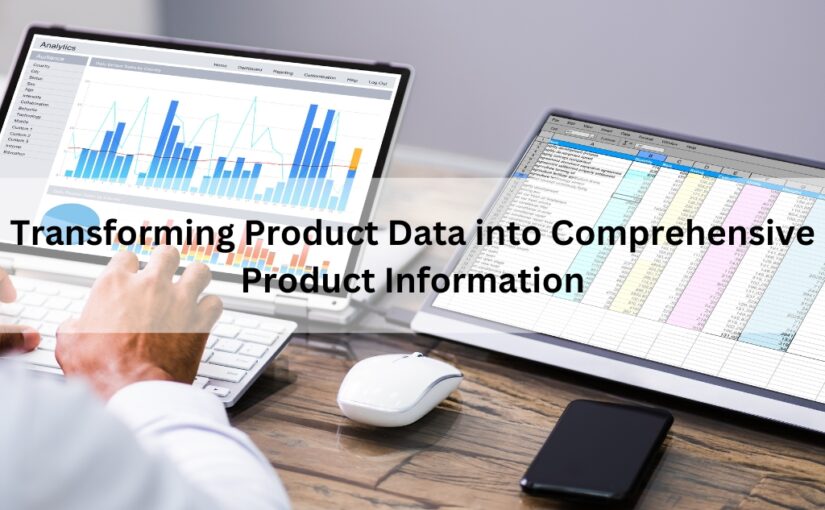Most frequently asked questions on Product Information Management (PIM).
What is Product Information Management (PIM)?
Product Information Management (PIM) is the process of managing product information. PIM includes detailed product classifications, attributes, and descriptions. The benefits of PIM are that it helps to reduce time spent on data entry, improves customer service by providing accurate information, and provides a better understanding of the company’s products. In order to improve the consumer experience, boost sales, sharpen marketing strategies and improve e-commerce analytics, it's essential to have accurate and complete Product Information Management (PIM). High-quality and consistent product data are essential to an effective digital strategy.
Benefit of Implementing PIM Tools in Your Business Operations and Strategy
PIM tools provide a platform for all your company’s product information. This includes the data and information about the product, its components, materials, and the manufacturing process. This data is then used to help with marketing, sales, and customer service. PIM tools are necessary for all businesses that produce products, whether they are physical or digital. They have many benefits including increased efficiency in supply chain management, improved customer service through better knowledge of products, and quicker responses to customer inquiries.
- Product Data and Content: Organizations can provide buyers with high-quality product information with accurate data classification and taxonomy. By integrating a content curation strategy into a PIM strategy, companies can ensure that their end consumers have access to reliable product metadata.
- A better customer experience: By using a PIM system to deliver consistent omnichannel information, customers experience an improved customer experience. The use of a PIM system eliminates any ambiguities in product cataloguing, leading to increased customer retention and revenue per customer.
- Reduce return rates: Organizations can provide consumers with accurate, detailed product information using a PIM system that ensures their expectations are aligned with the purchase they are making. On the eCommerce interface, users can enable complex filters to dig deeper into their preferences. It is always easier and more cost-effective for sellers to make purchases when they leverage accurate data.
- eCommerce Analytics: PIM systems also provide dashboards that help analyze several key parameters that are crucial to the success of an ecommerce business, such as consumer insights, behaviour patterns, sales trends, campaign performance, and cross-sell and upsell opportunities. Analytics can provide insight into the detailed consumer journey of a successful sale, and help the organization improve customer lifetime value.
- Integration of data and cost savings: In eCommerce infrastructure, a robust PIM system acts as a single source for all product information for websites, digital stores, mobile applications, and point-of-sales. Product data in real-time allows for faster updates and simplifies the management of product details such as product descriptions, pricing, discounts, and stock availability.
What is an Integrated Product Information Management System?
An integrated PIM provides a complete, accurate, up-to-date picture of what is for sale by communicating with other critical systems. It is possible to automatically retrieve the product information from a PIM database and display it on e-commerce websites, web portals, web services, electronic product catalogues, and other electronic systems that need to display the information. It is possible to update or add product information once in the Product Information Management system and have it retrieved by all the various systems that need it in the future by integrating this system with a Product Information Management system. When a product description is updated in a PIM system, for instance, it is automatically updated in the catalogue and on the website as well. In addition, the system can be used to update inventory availability via a web service, and it can be used to update a website automatically as well. The primary function of a PIM is to provide the complete, accurate, and master product information that is consumed by all other systems.
How can we improve product searchability?
The ability to optimize your products for search engines is one of the biggest strengths of PIM. By adding keywords to product descriptions and including alt text in photos, you will increase the likelihood of top-selling items ranking highly. By solving technical SEO issues, you will adhere to search engine best practices. Each product should be given its own unique content, and duplicate content should be avoided. PIM can help you increase your visibility by creating logical categories for your products. eCommerce stores have improved their structure and were able to direct customers to items they are interested in.
How much control will we have over product data?
A PIM allows you to control all aspects of your product information. This platform enables you to enrich data to a standard you set, whether you are updating product descriptions or uploading digital assets. The powerful automation allows you to make approvals super-quickly and efficiently. Also, you can choose where your product information comes from,such as an ERP system. You can be sure that it is stored in a single location, eliminating the headache of searching across multiple systems.How Enventure can help you with PIM Implementation?
From product data sourcing (whether online or direct supplier engagement), to data enrichment to ensure the data is validated, enriched, curated, and cross-referenced within the PIM data system, Enventure offers it all. The product database you receive for the PIM system is consolidated and classified from several sources, both online and offline. Using Enventure's PIM Solutions, you can curate content, enhance existing product data, and improve accuracy across multiple mediums. Additionally, Enventure helps clients create their PIM blueprints, including data models, taxonomies, attribute schemas, and ongoing data governance mechanism.










